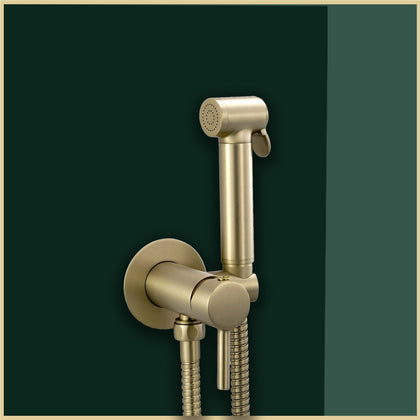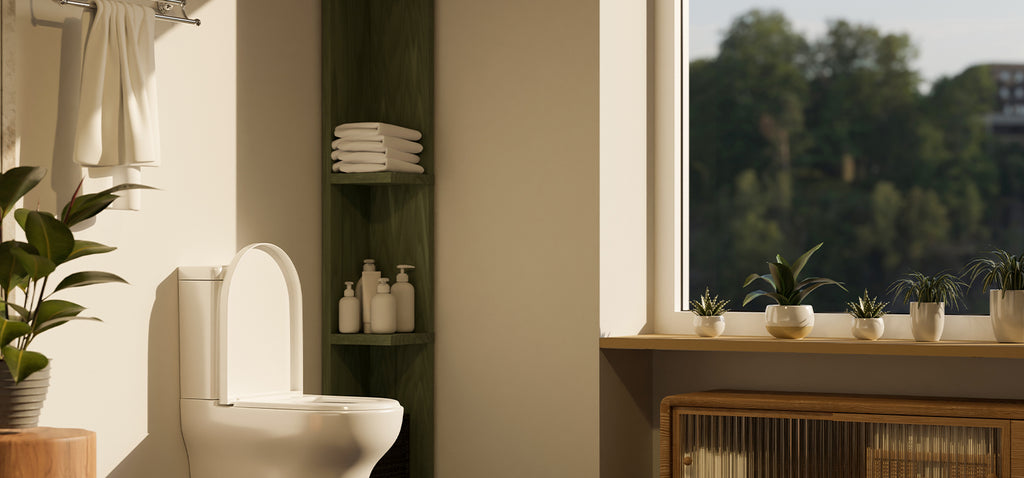Is toilet paper truly the most hygienic option for personal hygiene after using the bathroom? While it's a common choice in Western countries, some question whether it's the most effective method. Toilet paper is the go-to option for many, but is it truly the superior choice?
When it comes to cleaning up after using the toilet, there's debate over whether toilet paper or water is more effective. Medical professionals often advise against relying solely on toilet paper, as it may not adequately clean the area and can lead to smearing. Conversely, water offers a more thorough and convenient cleansing experience without causing discomfort or irritation.
So, which method do you prefer? The discussion around personal hygiene in the bathroom continues, with considerations for both convenience and effectiveness.
Toilet paper excessive use could be harmful to your health
Overuse of toilet paper can pose risks to your health, particularly when it comes to the sensitive skin around your buttocks. Excessive use of toilet paper may result in irritation and potentially lead to uncomfortable conditions such as anal fissures and urinary tract infections (UTIs). While it's a common practice, relying solely on toilet paper for hygiene can have negative consequences.
Toilet paper, despite claims of softness, can still be abrasive on delicate skin. The thin and delicate skin around the anus is susceptible to damage from dry toilet paper, potentially causing painful tears or bleeding with frequent use. Additionally, some toilet paper may contain bleaching agents, such as chlorine bleach, which can pose health risks and lead to various health problems over time.
Contrastingly, using water for cleansing offers a gentler and safer alternative. Washing with water is less likely to cause irritation or damage to the skin compared to the abrasive nature of toilet paper. Making the switch to water for hygiene can promote better overall health and comfort in the long run.
What are the Health Effects of Excessive Use of Toilet Paper?
Excessive use of toilet paper can have adverse health effects, impacting individuals of all ages. Overzealous wiping of the anus with toilet paper can contribute to the development of hemorrhoids and other related health issues. Additionally, continuous wiping may lead to anal fissures, causing discomfort and pain in the affected area.
Furthermore, inadequate hygiene practices, particularly relying solely on toilet paper for cleaning, can increase the risk of Pruritus ani, characterized by persistent itching around the anal region. It's crucial to recognize that toilet paper alone may not effectively remove all traces of fecal matter, potentially leaving behind residue that can lead to inflammation and discomfort.
Ensuring proper hygiene and exploring alternative cleaning methods, such as using water for cleansing, can mitigate these risks and promote better overall anal health.
A Bidet is the Best Choice to Clean Your Butt.
Bidets offer a hygienic and eco-friendly alternative to traditional toilet paper usage. With the ability to cleanse your backside with water, bidets eliminate the need for excessive toilet paper use, promoting a more thorough and gentle cleaning experience. Although bidets are widely embraced in regions like Europe and Asia, they remain relatively underutilized in North America.
With approximately 77% of Japanese individuals incorporating bidets into their daily hygiene routines, it's evident that bidets offer numerous benefits. By utilizing water for cleansing, bidets provide a gentler and more soothing option compared to abrasive toilet paper, particularly beneficial for individuals with sensitive skin, IBS, post-surgery care, or during pregnancy.
Bidets are particularly advantageous for pregnant women, offering relief and convenience amidst bodily changes and challenges. The soothing water stream can alleviate discomfort associated with constipation and hemorrhoids, enhancing overall bathroom experiences.
Many bidet users attest to feeling cleaner and more refreshed after each use, contributing to a heightened sense of hygiene and comfort. Incorporating a bidet into your bathroom setup not only promotes cleanliness but also enhances overall bathroom experiences, making them more pleasant and convenient.
What is a Bidet?
Bidet offer a unique approach to personal hygiene, utilizing water to cleanse the anal and genital areas after urination. Found in various shapes and sizes across the globe, bidets have been a longstanding tradition in many cultures, believed to provide a gentler and more pleasant cleansing experience, especially for sensitive skin.
Contrary to popular belief, bidets offer numerous advantages over traditional toilet paper usage, both in terms of hygiene and environmental sustainability. Research indicates that bidets can effectively reduce bacteria levels in urine, promoting a deeper and more thorough cleaning process compared to toilet paper alone. Moreover, cleaning the toilet bowl with soap and water post-usage is significantly easier with bidets, minimizing the risk of bacterial buildup and ensuring a cleaner environment.
Bidets also contribute to reduced germ spread, as they minimize direct contact with faecal matter, thereby lowering the risk of contamination and promoting overall cleanliness. Additionally, bidets can aid in preventing haemorrhoids by providing gentle cleansing and relieving pressure on the anus, potentially reducing the likelihood of developing this uncomfortable condition.
In healthcare settings, bidets have been employed to enhance toileting experiences and promote better hygiene among residents, showcasing their versatility and effectiveness in various environments. Overall, incorporating bidets into personal hygiene routines offers a host of benefits, from improved cleanliness to reduced environmental impact, making them a valuable addition to any bathroom setup.
Bidets are more eco-friendly
While bidets may still require water usage, their environmental footprint is significantly lower compared to traditional toilet paper. According to Tushy, a leading bidet brand, the production of a single roll of toilet tissue consumes a staggering 37 gallons of water. In contrast, using a bidet results in much lower water consumption, estimated at around one-eighth of a gallon per use.
Considering that the average American utilizes one to two rolls of toilet tissue per week, and one tree yields approximately 200 rolls, the environmental impact becomes evident. By incorporating bidets into your bathroom routine, you can significantly reduce your reliance on toilet paper, thereby conserving trees and water resources.
Making the switch to bidets not only promotes sustainability but also offers a practical and eco-conscious solution for everyday hygiene needs. By embracing these eco-friendly alternatives, individuals can play a part in preserving the environment while enjoying the convenience and effectiveness of bidet technology.
Toilet paper costs more than bidets
Bidets offer significant long-term savings compared to traditional toilet paper usage. While toilet paper expenses can range from $70 to $120 per year in the United States, incorporating bidets into your bathroom routine can lead to substantial cost reductions over time. This is because bidet water usage costs only a fraction of a cent per gallon, making it a much more economical choice in the long run.
By investing in bidets, individuals can enjoy ongoing savings on their household expenses while also reducing their environmental impact. This makes bidets not only a practical choice for personal hygiene but also a smart financial investment for the future.
Switching to bidets allows individuals to prioritize both their financial well-being and environmental sustainability, making it a win-win solution for all.
Bidets can be used much more easily
 |
| Bidet Spray/Douche Kit |
Toilet paper that is made from water can be cleaner than those made with toilet paper. Some people find toilet paper easy and convenient. Toilet paper has been a staple of Western society. However, not everyone can afford a bidet. Water is a better option than toilet paper if you want your bathroom to be clean and free from health hazards. This may sound strange to some, especially if you have used toilet paper since childhood. You can easily change from toilet paper to water if you are willing to make a change.





